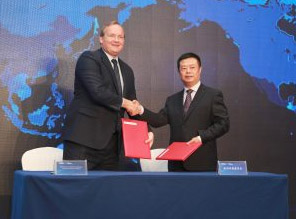Mitigating insider fraud in China
 Over the years, companies operating in China have experienced various types of fraudulent activities including theft of physical assets, misappropriation of company funds, corruption and bribery and procurement fraud. While we are seeing China-based companies investing more in financial controls to mitigate fraud, there is a continued increase in frauds relating to IP theft, information theft, corruption and bribery, and conflict of interest in China. In fact, according to the 2015 Kroll Global Fraud Report1, 73 percent of China-based executives were affected by fraud, an increase of six percent from the previous year.The increase in such incidents is partly due to the lack of employee and third party vendor due diligence and proactive data analytics to identify anomalous transactions or behaviour, as well as inadequate compliance training.Unravelling a fraudster Fraudsters could exist anywhere in any organisation but the risk of such fraud can be mitigated through proactive preventive efforts. In addition, it is important to understand the typical profile of a fraudster in China, to enable an organisation to better protect itself against insider fraud. Based on Kroll’s experience of cases in China over the past 18 months, a typical fraudster in China is often someone who appears trustworthy, and is smart, articulate, has the ability to think outside the box and lives a lifestyle beyond their means. These fraudsters behave like entrepreneurs, having high tolerance for risk and ambiguity, and a low fear of failure. While they may work hard at their jobs, they generally believe they deserve to be compensated better. This misguided sense of entitlement, coupled with the ‘fear of missing out’, dictates their spending habits, leading them to live beyond their means which often results in a continued search for ever-bigger rewards. Such self-justification/rationalisation also leads to denial of any wrongdoing when committing fraud and such a fraudster may explore multiple opportunities to make a personal gain, ranging from seemingly insignificant employee expense fraud to larger matters such as manipulating or ‘hijacking’ entire sales/distribution channels, and from one-off misappropriation of large company’s assets to frequent small value frauds. How to combat insider fraud While the above mentioned steps and insights into the mindset of a typical fraudster in China provide effective preventive efforts, it is critical that such efforts are supplemented by a strong ‘tone at the top’ and ‘zero tolerance’ message from senior management, which should be comprehensively cascaded down throughout the organisation. ––––––– |
Email: kenny.shek@kroll.com
Website: www.kroll.com


















